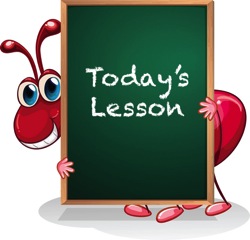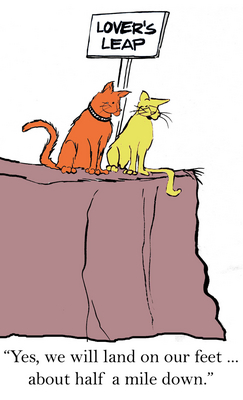When No One’s Looking
 Seems to me that one of the marks of being an adult is to do the “right” thing when no one is looking.
Seems to me that one of the marks of being an adult is to do the “right” thing when no one is looking.
By “right,” I mean the thing you would do if eyes were on you.
Reminds me of a story . . .
I was a road warrior for many years, traveling to many cities and having to eat at many different restaurants. I developed the skill to tell if the manager was on duty or not. It was immediately apparent to me often before being seated and handed the menus.
Something was off. The music wasn’t suited to the patrons seated at the tables, the wait staff was inattentive, empty tables weren’t cleared of used dishes, etc.
I would casually inquire if the manager was on duty and the answer was almost always, “No.”
It didn’t surprise me because having been a manager of people for many years, I got to see the “when the boss is away, the employees will play” dynamic at work.
But this isn’t about my lame superpower; it’s about growing up.
What is accomplished when you cheat at Solitaire? You cheat yourself out of your dignity, the same as you do when you don’t do what you agreed to do.
Growing up is keeping your agreements. I never took the EST training so popular in the 70s, but the founder of EST, Werner Erhard issued one of my favorite quotes: “The reason life doesn’t work is because people don’t keep their agreements.”
Growing up requires integrity. Every time you give yours a pass, you water it down to the point that you no longer have it.
Who can you count on? My guess is that person’s integrity is intact and is a card carrying adult. Who can’t you count on? That’s a person caught in adolescence who’s always checking to see who’s looking.
Both actions take effort. It’s a matter of where you put your attention. Is yours on avoiding your agreements or is it focused on your integrity?
Our lack of integrity is transparent but we act as though no one can can see it. The main person we cheat is ourselves when we don’t do what we say we’ll do.
Who ever stated, up front, that they’ll over-promise and under-deliver? But that’s exactly what you’ll do if you act differently when eyes aren’t on you.
For me, it’s really this simple: If you want a seat at the adult table, eat your vegetables when no one is looking.
All the best,
John
Be Sociable, Share!


 I used to think I was special in my ability to see through people. Then I realized everyone owns this skill. My “specialness” faded a bit when I realized I didn’t see that.
I used to think I was special in my ability to see through people. Then I realized everyone owns this skill. My “specialness” faded a bit when I realized I didn’t see that. I can think of no bigger waste of energy than planning to be upset, yet we all do it.
I can think of no bigger waste of energy than planning to be upset, yet we all do it. The Grasshopper must have been watching the United Nations on CSPAN just before he offered this: “There won’t be peace out there until there’s peace in here.”
The Grasshopper must have been watching the United Nations on CSPAN just before he offered this: “There won’t be peace out there until there’s peace in here.” Was reminded of an old lesson by an ant yesterday.
Was reminded of an old lesson by an ant yesterday.  The Grasshopper offered this post 4th of July firecracker this morning: “If you want to live more, respond more.”
The Grasshopper offered this post 4th of July firecracker this morning: “If you want to live more, respond more.” There is a school of thought out there that if you believe in something fervently enough, you can make it happen. My experience with that notion is that it has the win ratio of a lottery ticket.
There is a school of thought out there that if you believe in something fervently enough, you can make it happen. My experience with that notion is that it has the win ratio of a lottery ticket.